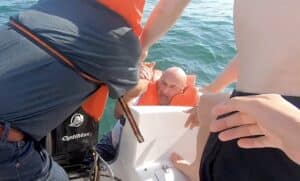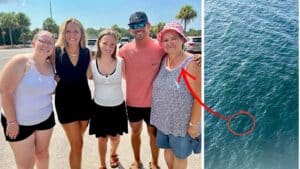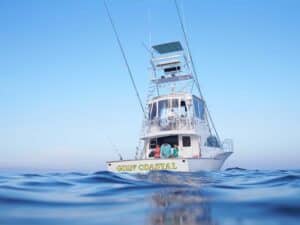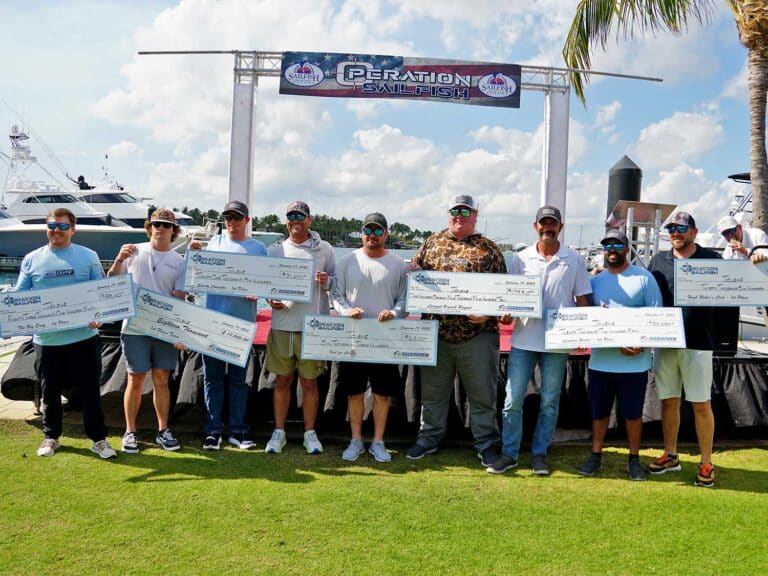
Looking forward to another season of boating with her young family, Allie Wojciak went online and bought a new life jacket for her son.
At least, she thought she did.
Wojciak typed “toddler life jacket” into the Amazon search window and chose one with more than 6,000 five-star reviews. When the vest arrived the next day, Wojciak discovered it was not a true life jacket at all. It was a “life jacket swim vest,” and the label clearly stated it “will not prevent drowning.” Wojciak, a popular content creator with nearly 18,000 followers on TikTok, shared her experience online.
“If you have a baby, please watch this video. I do not want you to make the same mistake that I almost did,” she says in a video that quickly went viral.
In the United States, life jackets for boating are approved by the Coast Guard, assuring they meet certain specifications and have undergone rigorous testing. The vest Wojciak bought didn’t even pass spell check.
Watch Now: Allie Wojciak’s TikTok PSA Video.
“Here is what the inside of the jacket looked like,” she says in the video, pointing out a label that, at first glance, looks a lot like a Coast Guard approved life jacket. “The first red flag is the word ‘intended’ is spelled wrong. It says, ‘intened use: swim vest for kids.’
“It is not a life jacket,” Wojciak continues. “Right here it says, ‘will not protect against drowning.’”
The Amazon listing described the vest Wojciak ordered as a “kids swim vest life jacket.” Even though the term life jacket was included in the product description, the item was in fact a child’s swim vest. They are not the same thing.
A life jacket will protect your child in an emergency. A swim vest won’t.
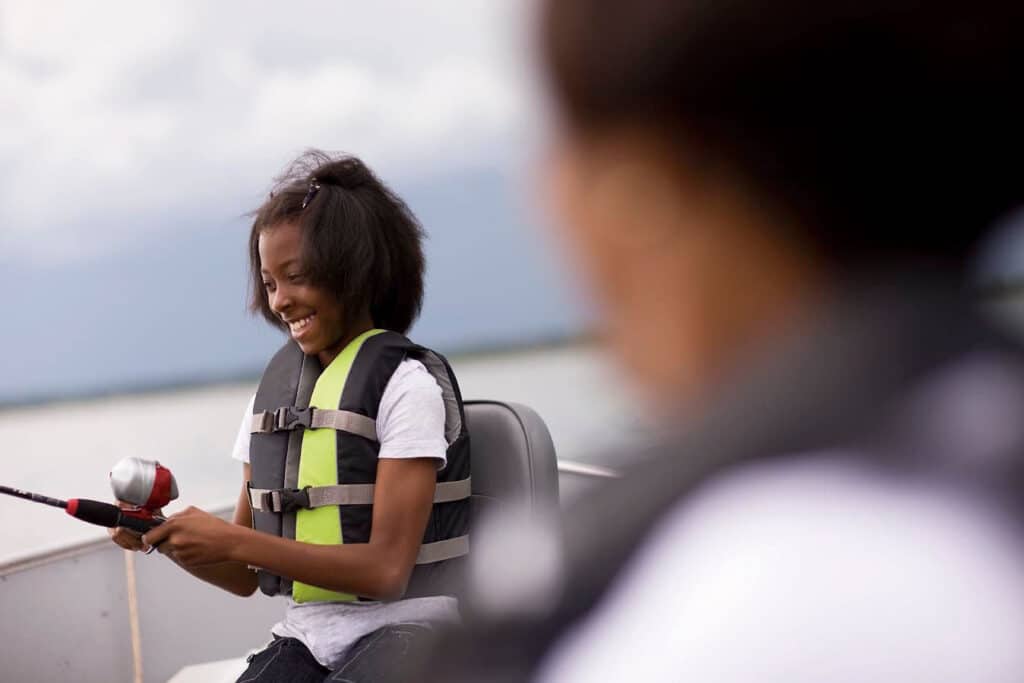
Yet in a recent search on Amazon for “toddler life jacket” only three of the first 10 results were for U.S. Coast Guard-approved life jackets. The others were swim vests providing less protection. Searches for “Kid’s Life Jacket” and “Children’s Life Jacket” yielded slightly better results, with six of the top 10 results being U.S. Coast Guard-approved.
Amazon isn’t the only online retailer offering swim vests in response to searches for life jackets. Google, WalMart, Target and others fail to make this critical distinction. That means parents should be especially vigilant when purchasing life jackets for their children.
How to Be Sure Your Child is Protected
When purchasing a life jacket for boating, the first thing you should look for is the U.S. Coast Guard approval label. If you’re shopping online, look to see if the Coast Guard approval is included in the listing. You may also be able to see the Coast Guard label in the product photos. The label will be located on the inside back panel of the life jacket.
As Wojciak discovered, the printed labels on some swim vests can look similar to the Coast Guard label – even if the device is not certified. Look closely to make sure your child’s vest is in fact U.S. Coast Guard approved.

The Coast Guard categorizes life jackets by performance Type and/or performance Level.
- Level 50, 70, 100, 150
- Type I, II, III, V
The number in performance Level devices indicates the minimum buoyancy of the device in newtons. For example, a Level 70 device provides 70 newtons, or 15.74 pounds of buoyancy. That’s roughly equivalent to the 15 pounds of float in a Type III life jacket.
The Coast Guard is transitioning away from the Type ratings, but you’ll still find plenty of new life jackets classified that way, and they’re perfectly fine. The important thing is that any life jacket you buy be Coast Guard approved.
Most kids in a supervised recreational boating situation will be best served by a Type III life jacket. Featuring the classic ski-vest design, Type III jackets are easy to put on, comfortable and, when properly sized, will keep a conscious child afloat with their head above the water until a parent or other rescuer can quickly swoop in. Inflatable jackets of any type are not approved for kids under the age of 16 and are not recommended for nonswimmers.
Kid’s sizes are based on weight, with typical designations being infant (8 to 30 pounds), child (30 to 50 pounds) and youth (50 to 90 pounds). Avoid the temptation to give a child growing room by purchasing a jacket that is too large. A struggling child may sink out of it when in the water.
Learn more about Choosing Life Jackets for Kids.
Takeaway for Boaters and Parents
Federal law requires all children under age 13 to wear a life jacket at all times while underway, unless they are below deck or in an enclosed cabin. It goes without saying that a swim vest doesn’t cut it.
Life jacket laws vary by state, so be sure to check the rules in your state. Adults engaged in certain water sports, such as wakeboarding, waterskiing or operating a personal watercraft are also required to wear a life jacket in most states.
Every vessel is required to have a U.S. Coast Guard-approved life jacket for everyone on board. Swim vests don’t count. The life jackets must be the proper size for the intended wearer, in good and serviceable condition, and readily accessible.

The best life jacket is the one you wear, so it’s important to shop for life jackets that are both comfortable and approved by the Coast Guard for their intended use. Check the fit each time you go boating and adjust as necessary. This is especially important for growing kids.
It’s important for boaters and parents to understand that a swim vest is not a life jacket. It’s a swim aid. Swim vests have less buoyancy and are intended for use in calm water, like pools. They aren’t a safe option kids on lakes, rivers, or oceans.
Still, the two types of devices look very similar, and after mixing up her own online order Allie Wojciak wanted to make sure other parents were aware of the difference.
“I should have read that description more carefully, but I searched for ‘life jacket.’ This is one of the first that came up and it had so many five-star reviews,” she says in the video, which received more than 270,000 likes. “Luckily we figured that out, I returned it, and got another one that does say it’s Coast Guard certified – an actual life jacket.”
Wojciak has one piece of advice for parents shopping online for life jackets. “Please make sure that it is actually a life jacket, to make sure your baby is safe this summer.
